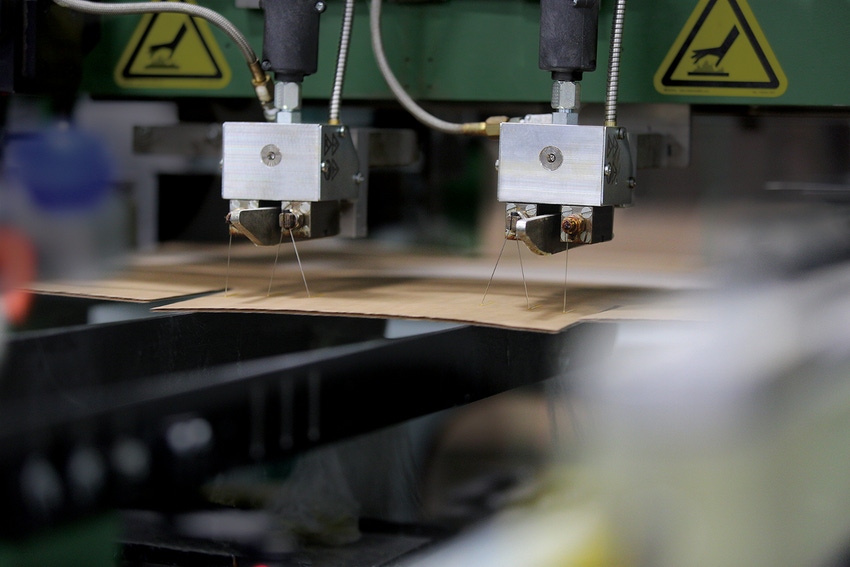Improve your packaging hot melt adhesive operations
July 10, 2018

Is hot melt adhesive the disenfranchised stepchild of your manufacturing operation? If not, good. But if you’ve had ongoing issues with solid adhesive control, expense, functionality, sanitation and related, it might be worth your while to put some resources against evaluating alternative products.
Some of the complaints I’ve heard about hot melt include:
• It’s not worth the time/effort to change.
• It might cost us more.
• It causes me downtime due to clogging and charring.
• It’s difficult to control consistent application.
• It stinks.
I personally oversaw improved formulation hot melt tests at five separate locations, each with multiple lines. In all cases, migration from old hot melt to “new and improved” hot melt was looked at skeptically, but when the smoke cleared, not a single location complained. In fact, they all raved about the benefits of the product and configuration upgrade to which they switched.
Hot melt is not a “one size fits all” material, but locations likely want to unify their solid adhesive for case and carton sealing applications. Therefore, they look for a solid adhesive product that serves multiple masters. I personally liked solid adhesives formulated with metallocene catalyzed polymer. The one that I chose was suitable for use in a non-contact food application, had excellent hot tack properties, could be pumped at a variety of line speeds and had excellent adhesion properties at low application weights.
Speaking of application, it does no good to pump high-end hot melt through or with poor control or unmatched systems. The encoders, hoses, pumps and applicator specifications need to match each other and the nuances of the process. Nozzle orifice and geometry matter when looking to replicate location and quantity. Like everything else on the line, the various equipment controlling timing and dosing (on-off) for the primary, secondary and tertiary packaging processes needs to be compatible and perfectly coordinated. Your hot melt dosing equipment vendor should be able to suggest specific components for each application.
I supported the trial of new hot melts by purchasing limited numbers of new pots, hoses and related peripherals (guns/nozzles) for the plant. In the event that they didn’t work or were rejected, I didn’t want the plant to complain that I had fouled their equipment or cost them added production down-time. Key parts were replaced on one line (of plant operation’s choice) and a clear, self-cleaning, no-char hot melt added. The systems were adjusted to apply the minimum dose by weight and shape (oval or circle).
Once the adjustments were made, we operated the line normally. If the unit manager liked the results, we either left the equipment in place, or removed the test parts and replaced them with the originals.
Hot melt is usually a low profile, forgotten line component. Taking a look at a better product, application component or control system might just pay for itself and improve overall line efficiency.

Gary Kestenbaum is an independent food packaging consultant with 40+ years of experience in the food industry as a food process developer, a package developer with Kraft Foods and a food packaging safety consultant with EHA Consulting Group. He can be contacted at [email protected].
About the Author(s)
You May Also Like




